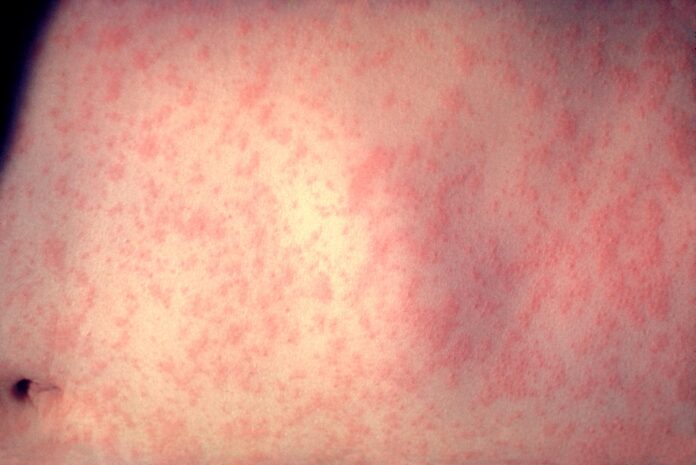Like the miscreant in a blood and gore film, the measles simply won’t bite the dust. The ongoing measles flare-up keeps on spreading across the U.S.
“Measles spreads rapidly among individuals who aren’t safeguarded from it,” says irresistible sickness expert Kristin Englund, MD. “At the point when someone is hacking or wheezing, the infection can get high up or connect with furniture and different surfaces. It stays there for as long as two hours, even after the tainted individual has left the room.”
Be that as it may, with such a lot of data (and manipulation through scare tactics) out there about measles in grown-ups and youngsters, how might you safeguard yourself and your loved ones? Dr. Englund spreads out your choices.
On the off chance that you were brought into the world before 1957
It appears to be that living in the pre-immunization season of tuberculosis, polio and measles helps you here. “Assuming that you were brought into the world before 1957, you were in all likelihood presented to measles and are currently invulnerable,” Dr. Englund makes sense of.
Thing to do: Nothing. (What’s more, thank heavens – that plan for the day of yours is as of now full.)
Assuming that you were brought into the world somewhere in the range of 1957 and 1989
The measles immunization was authorized in 1963, however until 1989, individuals just got one portion of it. One portion is around 93% compelling, Dr. Englund says. A subsequent portion supports that adequacy to 97%.
Thing to do: If you’ve certainly had two opportunities, you’re free and can inhale a murmur of alleviation.
If you maaaaaybe have gotten a subsequent portion, Dr. Englund prescribes going to your PCP for a blood test to check in the event that you have measles antibodies and are invulnerable. In the event that you’re not, you can receive available immunizations. Or on the other hand, you could simply have that chance at any rate.
“There’s no damage in getting a third immunization,” she guarantees.
Assuming that you were brought into the world after 1989
You in all likelihood have recorded evidence that you’ve been inoculated for measles two times as the MMR antibody, which additionally incorporates immunizations for mumps and rubella.
Thing to do: If you don’t have documentation of your immunizations and you’re uncertain about whether you got them, see your primary care physician for a resistance test or feel free to get another antibody.
In the event that you’re intending to travel
“There are episodes everywhere, unquestionably in regions like Israel, Ukraine, Germany and the Philippines,” Dr. Englund says.
Thing to do: Check the CDC’s site for cutting-edge data on measles areas of interest. Then, at that point, get a measles antibody in the event that you don’t know about your resistance status or on the other hand assuming you’ve just had one MMR shot. Dr. Englund suggests getting your antibody somewhere around fourteen days before you leave.
Assuming you have little youngsters
The CDC suggests this two-portion antibody plan for youngsters:
First portion: Between 12 and 15 months old enough.
Promoter: Between 4 and 6 years old, or if nothing else 28 days after the primary portion.
On the off chance that you’re going with a baby 6 to a year old to an area with high measles risk, they can get an early portion of the MMR antibody. When they turn a year old, however, they will in any case require the two-immunization series.
Thing to do: Get your kids immunized. “We should be watchful about safeguarding the people who can’t be safeguarded by the antibody,” says Dr. Englund.
Whenever you shouldn’t get the measles antibody
Dr. Englund says you ought to converse with your PCP prior to getting a MMR immunization in the event that you are:
Pregnant.
Taking biologic or insusceptible smothering drugs.
Going through chemotherapy.






